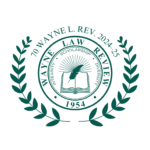Workers’ Disability Compensation
There are five exceptions to the law establishing the Workers’ Disability Compensation Act (WDCA) as the only law to apply to an employer when an employee is injured at work. Three of the exceptions expand the law’s application. The WDCA and all other laws can apply to an employer that intentionally injures an employee, deliberately has an employee pose as a contractor to avoid the WDCA, or who fails to have insurance for workers’ compensation. The other two exceptions displace the WDCA with other law. Only the law other than the WDCA may apply to an employer when an employee is injured during recreational activity or outside of Michigan unless particular circumstances are demonstrated. Read More …
